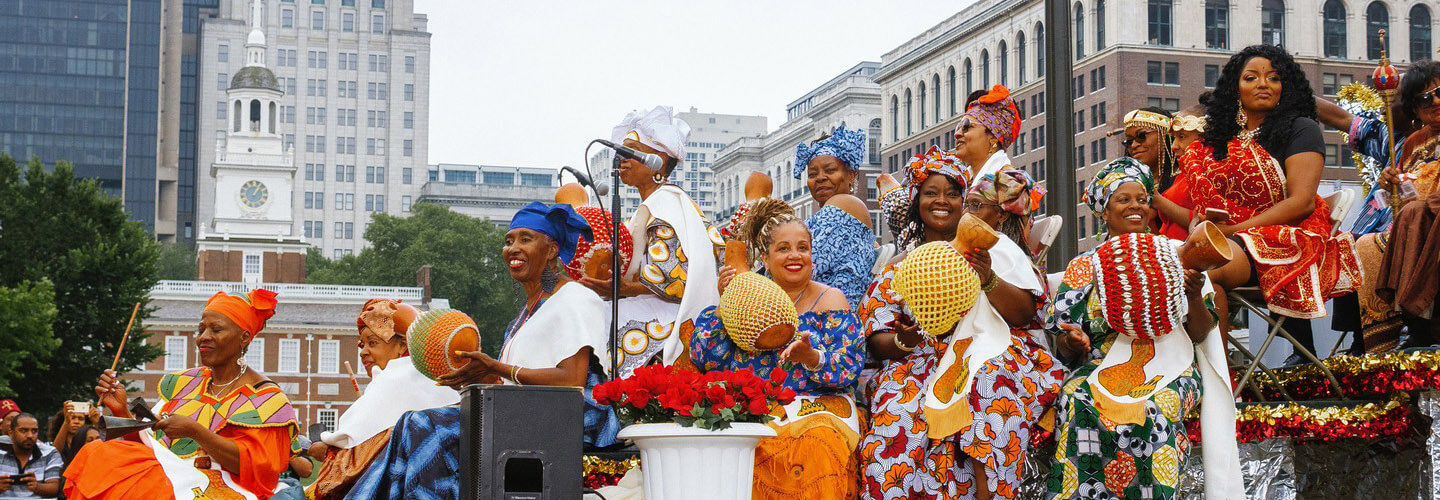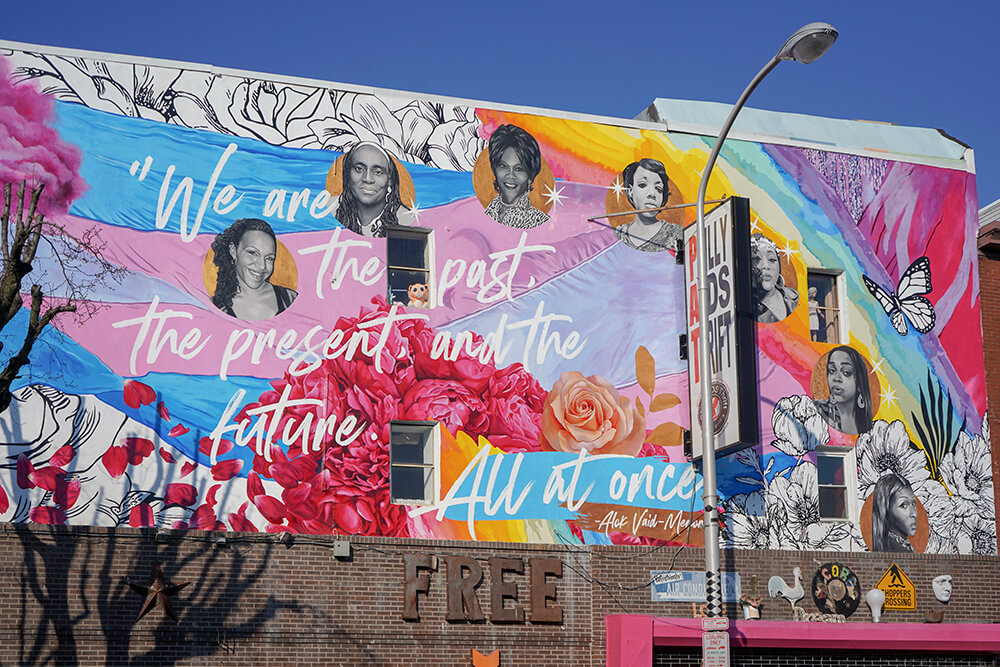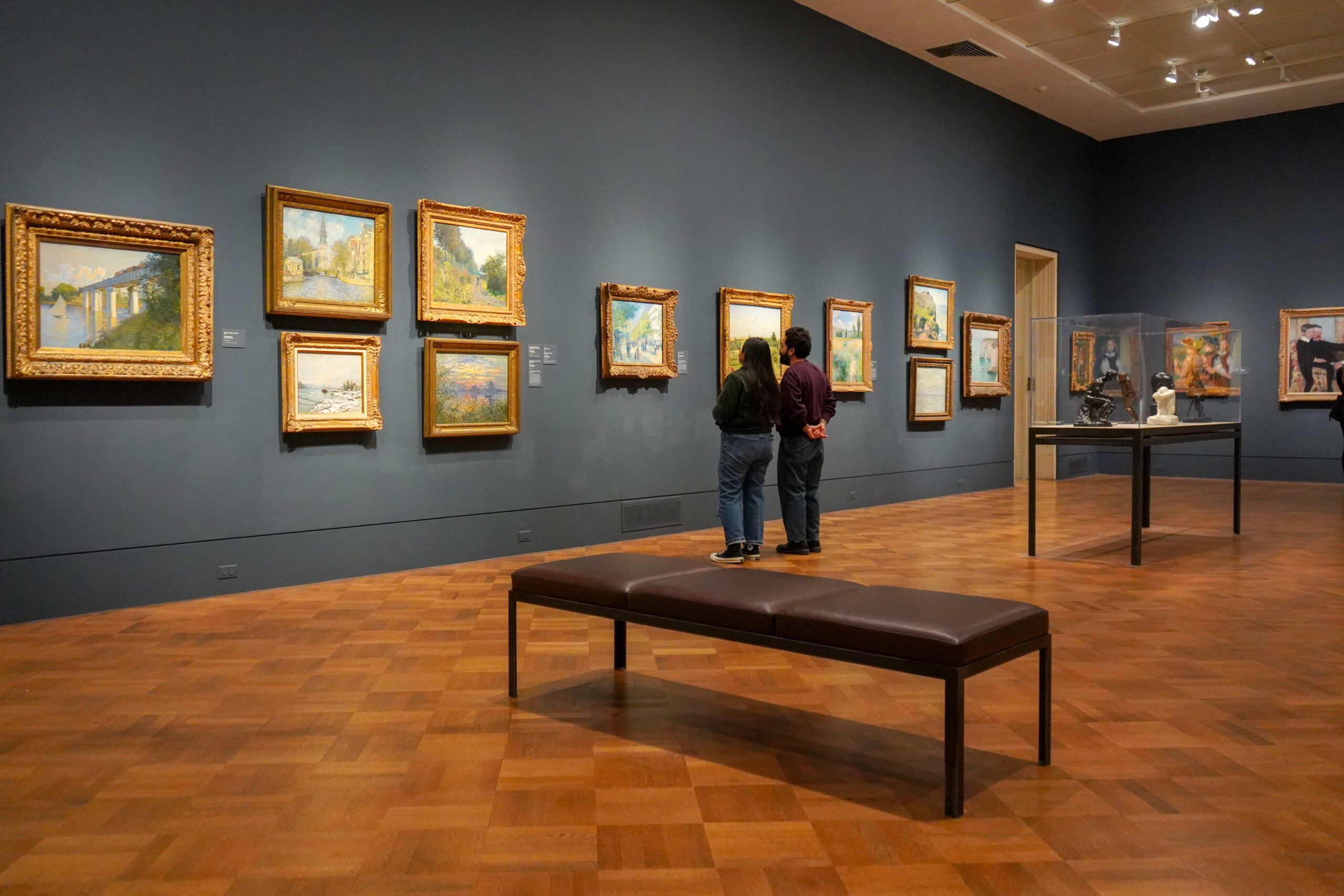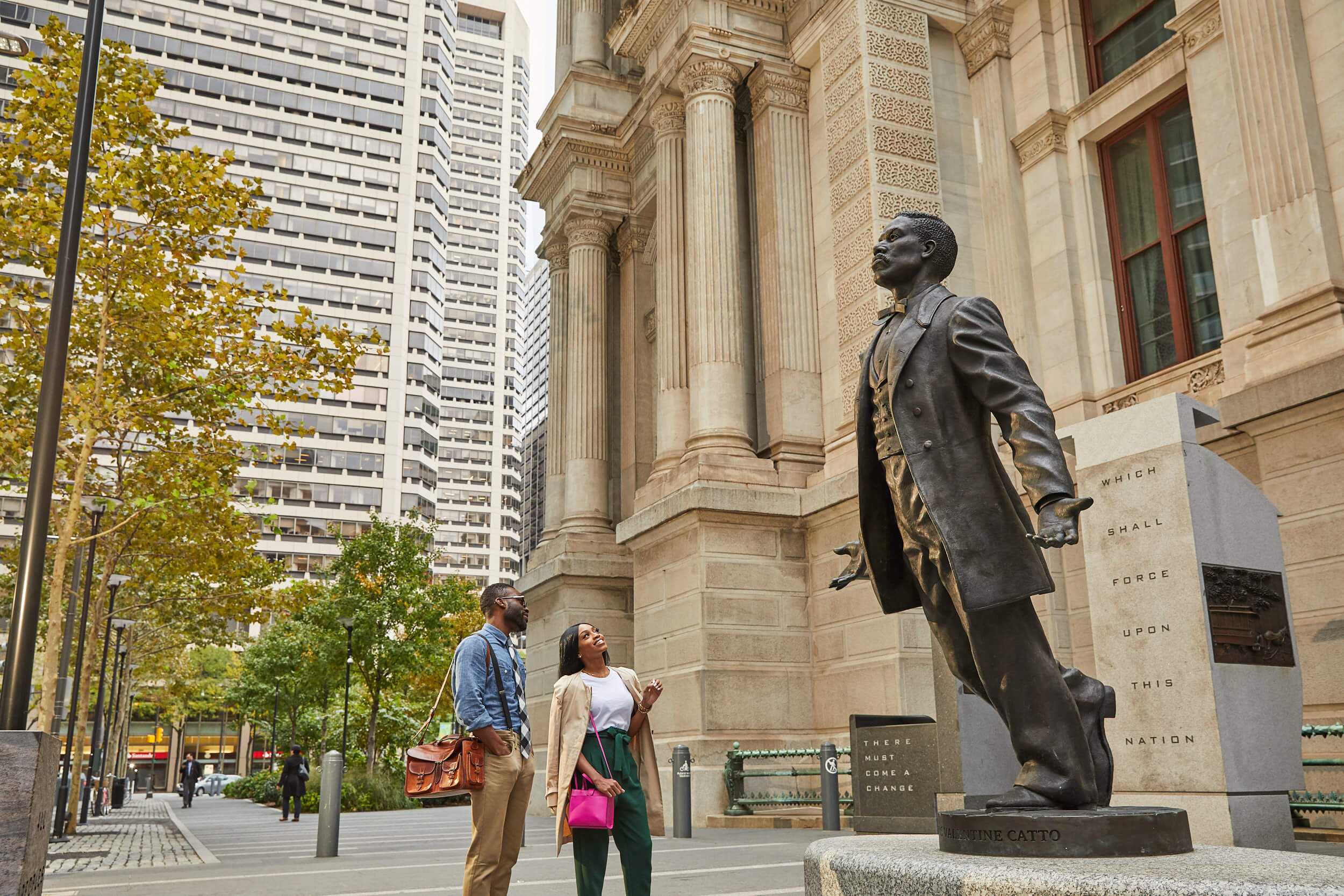
As one of the nation’s oldest and most culturally diverse cities, there are numerous ways to celebrate Black history in Philadelphia. Check out this list of things you can do to commemorate Black history in Philadelphia throughout the year.
Historical sites and monuments
Discover the untold stories woven into the fabric of Philadelphia’s past. On South Street, visit the old Engine Company No. 11 building. This was the former home of Philadelphia’s first and only all-Black firehouse. In Germantown, the Johnson House was once home to a family of Quaker abolitionists and served as a vital part of the Underground Railroad. Today, the site is home to the Underground Railroad Station and House Museum, telling stories of the courageous decisions made by enslaved Africans in their journey to freedom.
View this post on Instagram
A bronze statue on City Hall’s southern terrace memorializes Octavius V. Catto – a teacher, athlete, and one of Philadelphia’s most influential Black leaders during the 19th century. In 1871, while on his way to vote – a right Catto fought to secure for African Americans – he was assassinated. The statue honors Catto and his significant contributions to the civil rights movement. There is also a mural honoring Catto along the 1400 block of Catharine Street, not far from where he lived.
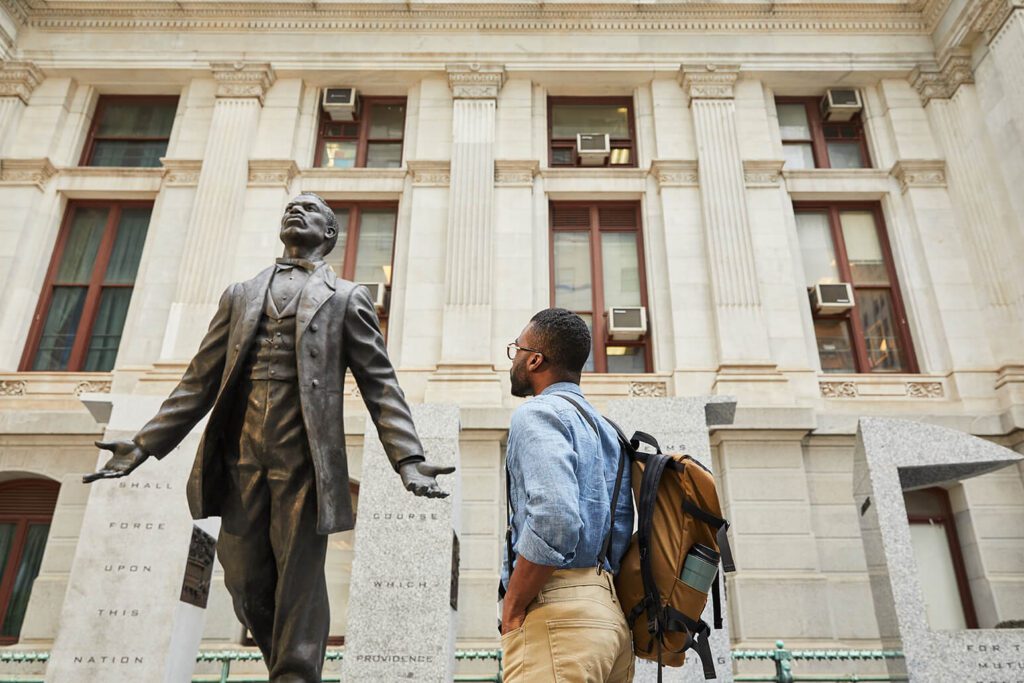
Octavius Catto
As the “Mural Capital of the World,” Philadelphia is home to over 4,500 murals, many of which honor African American heroes and key leaders in the Black community. In West Philadelphia, They Met the Challenge is a mural honoring the Tuskegee Airmen. The mural features portraits of the Philadelphia Chapter of the all-Black elite squad of pilots. Civil rights leader Dr. Martin Luther King. Jr. is honored on several murals, including one in North Philadelphia depicting his march from Selma to Montgomery, Alabama.
At the President’s House in Independence National Historical Park, visitors grapple with the paradox of slavery and freedom at the nation’s inaugural executive mansion. Once home to Presidents George Washington and John Adams, the President’s House is also where nine enslaved people served the first president.
This open-air site near the Liberty Bell Center was home to a physical exhibit documenting the stories of forced labor through visual timelines and video vignettes. While the exhibit was removed from the grounds in January 2026, legal proceedings are underway to restore it, and the story of the President’s House remains a vital part of Philadelphia’s historic narrative.
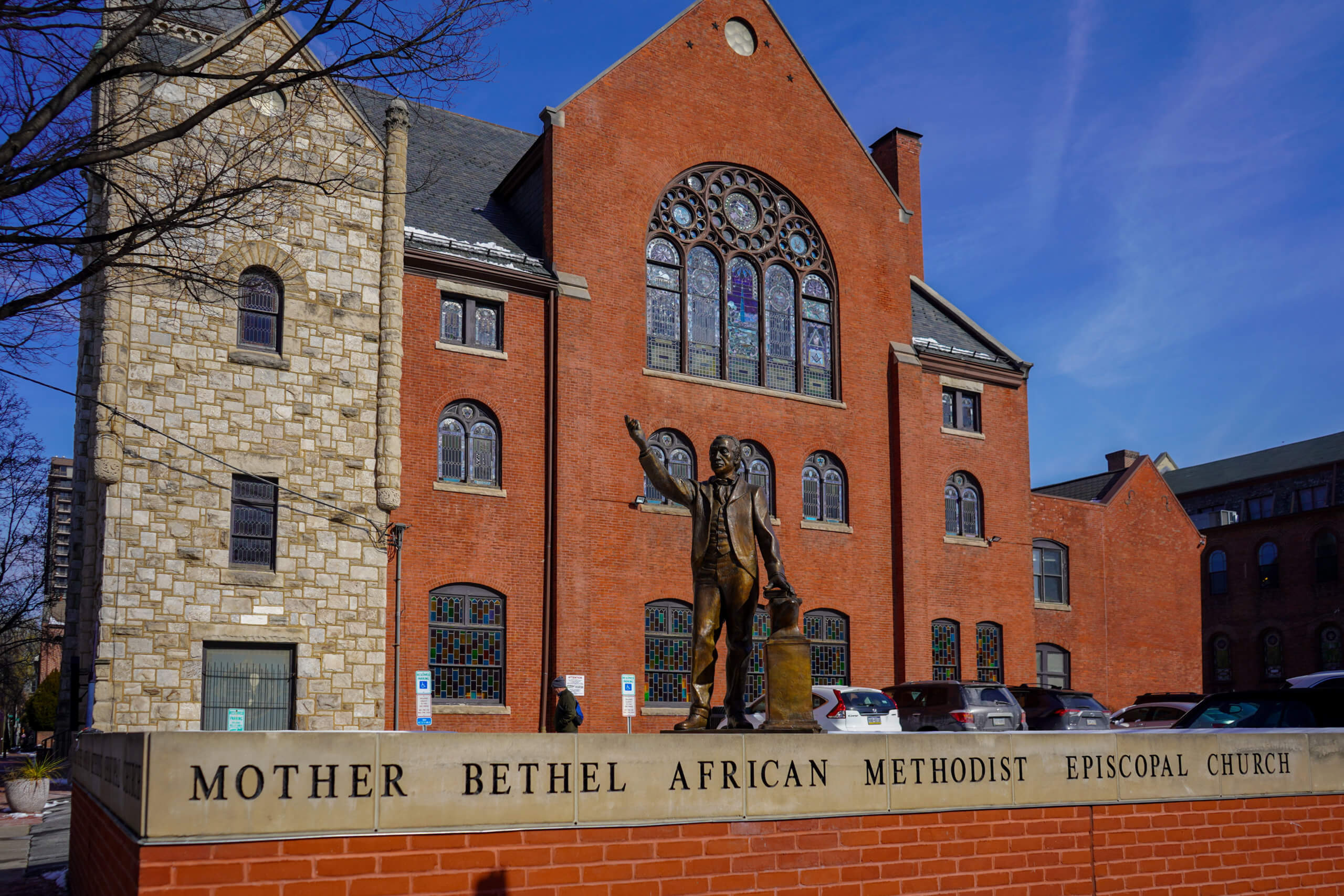
Mother Bethel A.M.E. Church. Photo by J. Ryan for PHLCVB.
Along 6th Street, Mother Bethel A.M.E. Church is home to the oldest African Methodist Episcopal congregation in the United States. The church rests on the oldest parcel of land continuously owned by African Americans in the nation.
Explore some of these sites and more on the Black Journey Tour. Guides take you through the rich history of Black Philadelphia, uncovering details of its significant past against the backdrop of the nation’s most important monuments and sights.
Black history in Philadelphia’s museums
The African American Museum in Philadelphia is the first museum in the nation funded and built by a major municipality to preserve, interpret, and exhibit African American heritage. The museum portrays the achievements and aspirations of African Americans spanning from pre-colonial times to the present day.
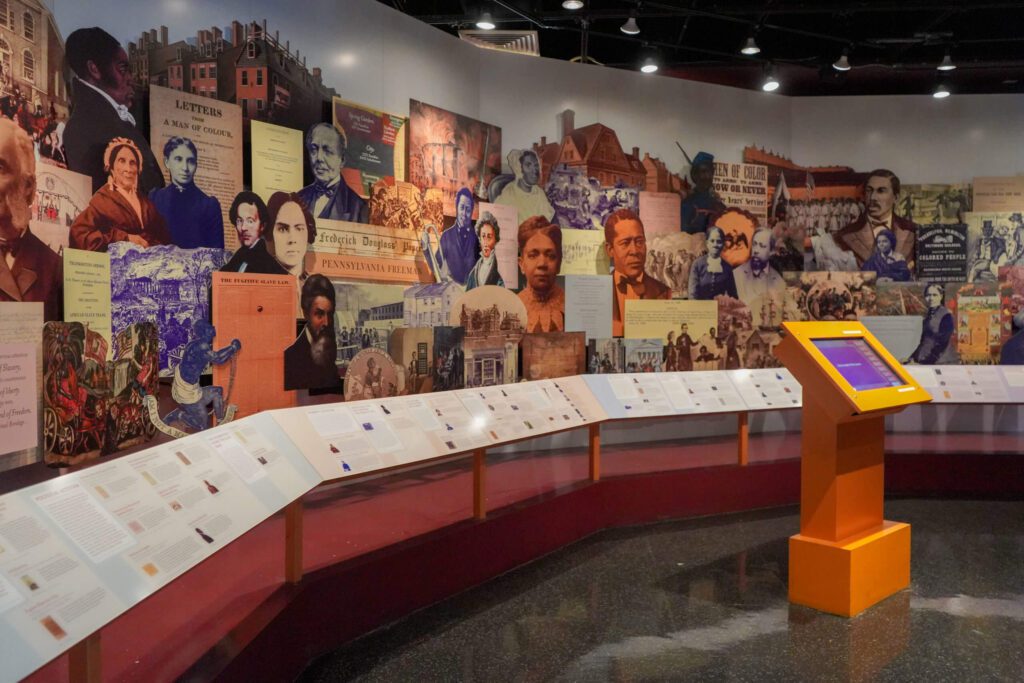
The African American Museum in Philadelphia is the first museum built by a major United States city that is dedicated to preserving and exhibiting African American history and culture.
Located in a 130-year-old Victorian house in Germantown, The Colored Girls Museum presents art, jewelry, books, and other items that reflect the stories, experiences, and history of Black and Brown girls. Nearby, the Lest We Forget Museum of Slavery sheds light on the injustice of slavery and its continuing impact on American ideals.
The Museum of the American Revolution in Old City highlights the lesser-known stories of Black men and women who served a critical role in the American Revolution. The exhibition “Finding Freedom” explores the journeys of enslaved people during America’s quest for liberty.
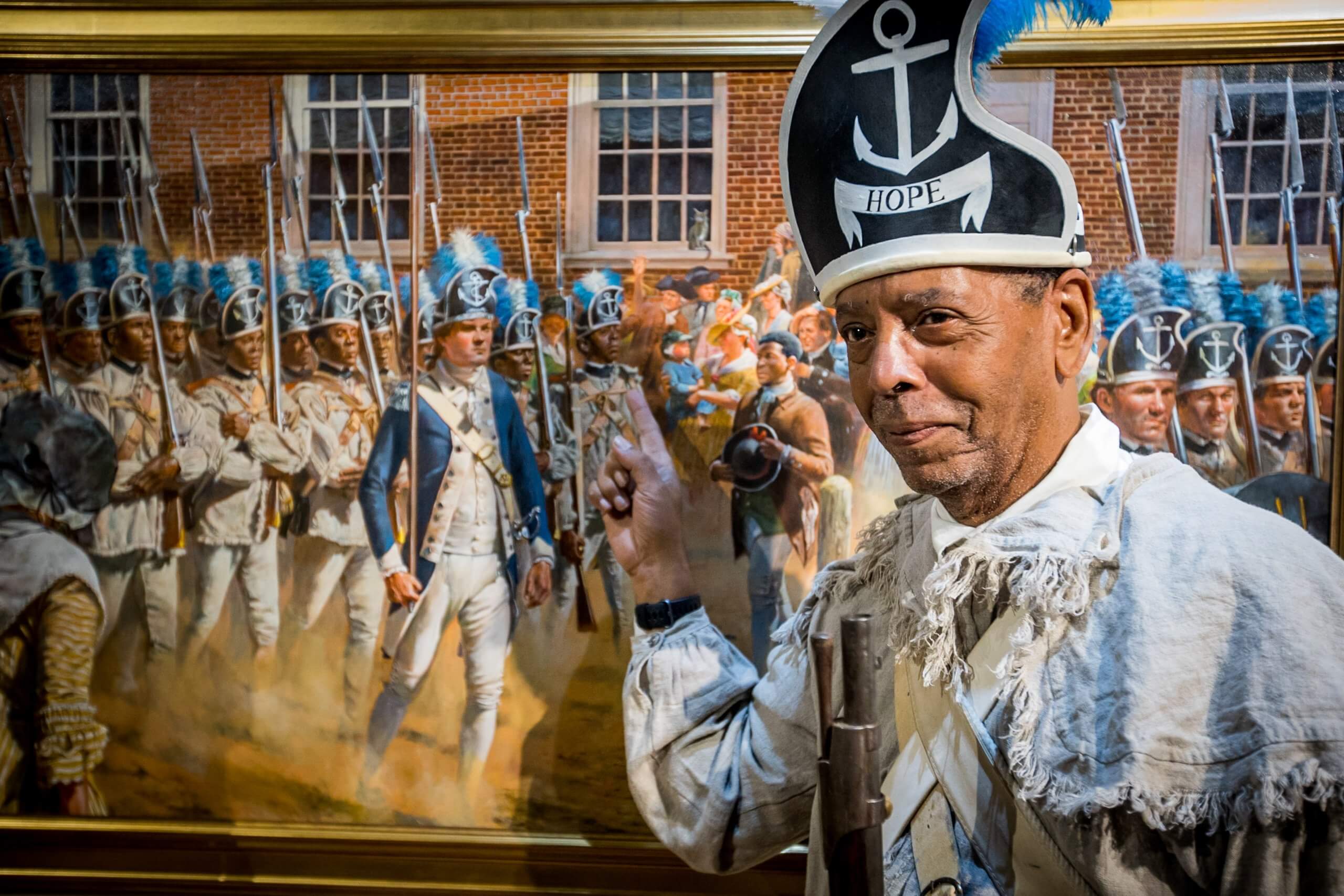
Algernon Ward poses with Brave Men as Ever Fought painting. Photo courtesy of the Museum of the American Revolution.
The National Constitution Center’s War & Reconstruction gallery is the first in the United States that tells the story of the nation’s second founding. The gallery features rare artifacts such as Dred Scott’s signed petition for freedom, a pen and inkwell belonging to Frederick Douglass, and original copies of the 13th, 14th and 15th Amendments.
Shop at Black-owned businesses
Among Philadelphia’s great collection of Black-owned businesses is Dope Botanicals. This modern herbal a’plant’ecary, specializes in plant-based wellness in Rittenhouse Square. The urban apothecary, offers visitors everything from tonics and teas to delicious smoothies and drinks.
Bookworms will want to inch their way over to Harriett’s Bookshop in Fishtown, which celebrates female writers, activists, and artists. Don’t miss Hakim’s Bookstore & Gift Shop in West Philadelphia, one of the country’s oldest Black-owned bookstores, founded in the 1950s. Experience the welcoming ambiance of Uncle Bobbie’s Coffee & Books in Germantown where a thoughtfully curated book selection, high-quality coffee, and community-driven events converge.
If you need a place to stay, consider Akwaaba Bed and Breakfast Inn. The Inn offers several suites designed to celebrate Philadelphia’s music legacy in a historic 1880s manor in West Philadelphia.
Dine at Black-owned restaurants
Philadelphia’s Black-owned restaurants, cafes, and bakeries offer dynamic flavors and showcase the city’s diversity. Good Karma Café in Center City or Bower Café which has locations in University City and Washington Square West. Bower Café sources the highest quality beans for their coffee and serves open-faced sandwiches.
Head to Bake n’ Bacon in South Philadelphia, the city’s first and only bacon-inspired restaurant offering gourmet sandwiches, sweets, and creative sides featuring bold flavors. Amina combines American Southern cuisine with African-inspired culinary creations, providing a fresh twist on soul food. Recently awarded a MICHELIN Star, Friday Saturday Sunday in Rittenhouse Square offers a seasonal eight-course tasting menu.
Other highlights include savoring a menu filled with Southern favorites at Booker’s Restaurant and Bar in West Philadelphia. Or enjoy Southern-style cooking with a side of jazz at SOUTH Jazz Kitchen just a few blocks north of City Hall. Another essential soul food stop is Ma Lessie’s Chicken & Waffles in Reading Terminal Market.
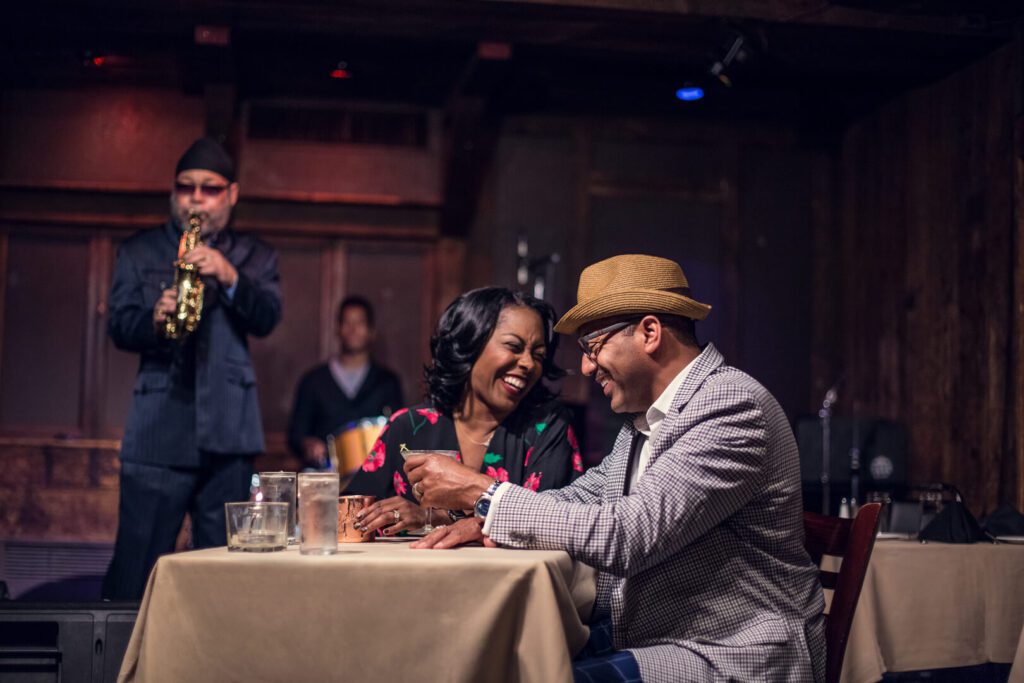
Chris’ Jazz Café. Photo by Visit Philadelphia.
Looking for more historic activities in Philadelphia? Visit our things to do page for more exciting excursions. If you’re planning an event in Philadelphia, learn more about bringing diverse initiatives to your events from our PHL Diversity division.
